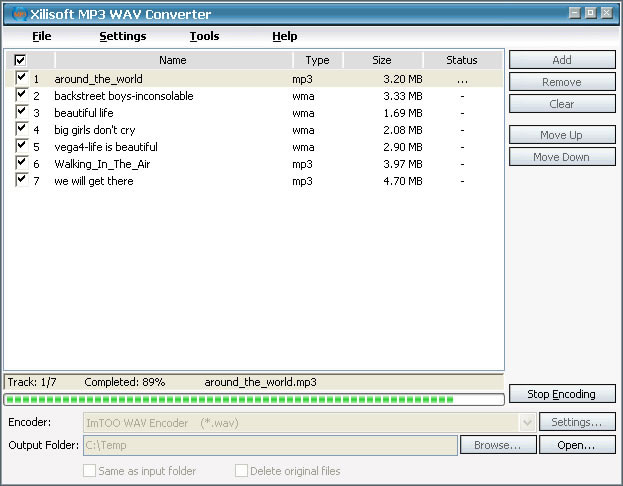
This might not be an issue, however, on modern computers, as they have much faster disks drives. So if the audio is stored on a slow disk drive, it can cause buffering issues (as audio needs to be loaded from disk to RAM before the music player can decode and play the file). W64 is a successor which has a 64bit header, allowing even larger file sizes.Īpart from that, since the audio is uncompressed, its file size is large. WAV files are limited to 4GB in size as they have a 32bit file size header. Other formats like MP3 and AAC offer much smaller file sizes, as they are lossy. The large file size means that it's usually not suitable for transmission over the internet. For example, sound engineers use it a lot – and due to its lossless form, it can be used for early production samples. The WAV format is widely used where you would want uncompressed audio. WAV (or WAVE) stands for Waveform Audio File Format.

Now that you understand audio compression, let's move on to the main topic of this article. It will save space and remove extra data that you might never even hear. Unless you have a very good HI-FI sound system that can reproduce those extra fidelity sounds, you should go for lossy. Compression is also performed after this step.

In this type of compression, some part of audio fidelity, deemed inaudible/indistinguishable to human ears, is removed or has its fidelity (or accuracy or loudness) reduced. The tradeoff is that you have very large file sizes. These algorithms may perform some kind of compression on the audio, but it doesn't remove any audio data, thus nothing is lost. So what's the difference between these two? Lossless algorithms What compression means in audio codecsĪudio compression algorithms are divided into two categories: Lossless and Lossy. Today, we'll be looking at software encoders and we'll focus our attention on the WAV format. Some examples of such codecs are MP3, FLAC, WAV, and AAC.

The software counterpart is an algorithm that compresses and decompresses digital audio. They can be implemented as hardware codecs, which encode analog audio to digital audio and vice versa.Īn example of such codecs are sound cards in your computer, which have built-in analog-to-digital (ADC) and digital-to-analog (DAC) circuits. I'm talking about audio codecs.Īudio codecs, in simpler terms, are just encoders and decoders ( co - coders, dec - decoders, or co - compressor, dec - decompressor). They've also developed a method to save them in digital format. So naturally, engineers found a way to convert these analog signals into digital signals. This means that it cannot be stored and processed by the computer directly, as a computer only understands digital signals. Since audio or sound is a wave (a literal, continuous wave) it is analog in nature. Audio is a very important part of any digital media.


 0 kommentar(er)
0 kommentar(er)
